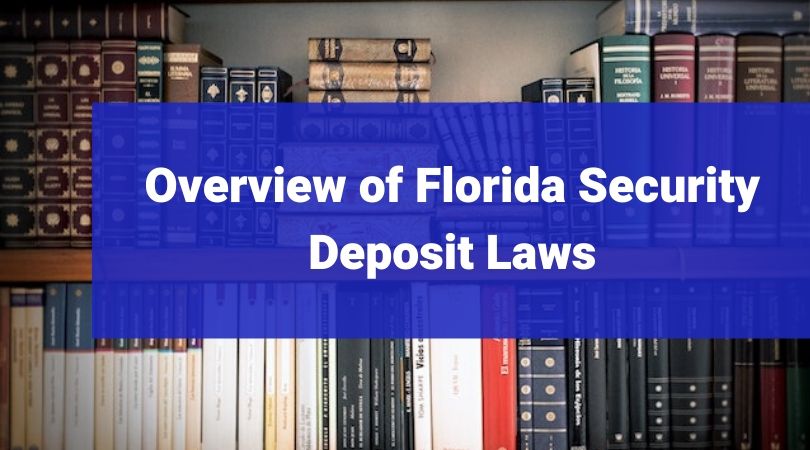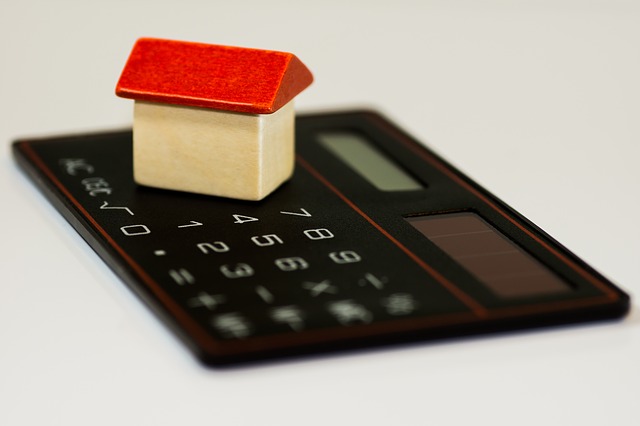
Are you a landlord looking for an overview of the security deposit laws in Orlando, Florida?
If you are, you have come to the right place. With our experience in managing properties, we understand the importance of knowing them to avoid landing yourself on the wrong side of the law.
What is a Security Deposit?
Security deposits help protect landlords from negligent and careless property damage caused by tenants. They are a one-time fee. Quite frankly, the use and return of security deposits is a source of conflict between Orlando landlords and renters.
A tenant may strongly believe that they returned the property in great condition, but the landlord may think otherwise. When all is said and done, the case may end up in a small claims court.
To avoid potential issues like such, it is important for both parties to understand the use and return of the security deposit.
Why Do Landlords in Florida Require a Security Deposit?
Landlords in Florida require security deposits for many reasons. For one, security deposits help cover excessive property damage. Examples include broken cabinet doors, doors ripped off its hinges, chipped or gouged wood floors, and unauthorized paint jobs that require re-painting.
If a tenant causes any of the aforementioned, Florida landlord-tenant laws permit you to make appropriate deductions from their deposit.
That said, you cannot penalize a tenant for damages resulting from normal wear and tear. Examples of these include moderate dirt on the carpet, faded curtains, dusty blinds, and faded paint.
Aside from property damage, landlords also require security deposits to cover for lost income, loss in rent payments, excessive cleaning costs, and unpaid utilities upon move-out.
With that in mind, here are the basics of Florida security deposit laws:
1. Florida Security Deposit Limit
There is no law in Florida that limits how much a landlord can charge a tenant for a security deposit. Nevertheless, the amount should be reasonable. As a matter of fact, most landlords charge no more than the equivalent of two months’ rent.

So, for example, if the rental price is $1,000, then most landlords will require their tenants to pay $2,000 as a security deposit.
2. Storing a Tenants Deposit in Florida
When it comes to storing a tenant’s security deposit, landlords in Florida have three options. One, landlords can store it in a non-interest-bearing account. In addition, you must also not mix the tenant’s security deposit with any other funds.
Two, you have the option to store it in an interest-yielding account. You will then be required to pay your tenant any interest accrued on the money at the end of the lease cycle. You can pay the interest to your tenant directly or credit it back to the renter as rent.
The last option is to post a surety bond for the amount of the security deposit, or $50,000, whichever option is less costly. With this option, you will need to pay your tenant an interest of 5% each year on the bond.
3. Walk-Through Inspection
This is not required in the state of Florida.
4. Reasons to Keep a Tenant’s Security Deposit
There are many reasons why landlords require tenants to provide them a security deposit. Some of the reasons include:
- Excessive cleaning expenses
- Abandoning the property
- Early lease termination or an eviction
- Unpaid utilities or HOA fees
- Excessive property damage
- Nonpayment of rent
A landlord can keep all or a portion of the deposit depending on the severity of the problem.
5. Notice of Intent to Claim Security Deposit Florida
Do Florida landlords need to notify their tenants of receipt of their security deposits?
Yes, the state’s security deposit law requires you to. Moreover, it requires you to do it no later than thirty days once you have received the deposit.

The notice must contain three important details:
- The banking institution’s name and address.
- State whether the funds are mixed with other funds or not.
- The interest rate that will be accrued annually (if the funds are held in an interest accruing account).
Note, that you need to deliver the notice in person or by mail.
6. Nonrefundable Fees
Are nonrefundable fees allowed in Florida?
There is no statute that has been enacted in this regard. However, it is typically allowed and customary.
7. Security Deposit Return in Florida
In the event the property changes ownership, the law requires the landlord to transfer the security deposit as well as all interest accrued to the new landlord. You must also create a written receipt indicating the specific amount that has been transferred.
You will then be relieved of any responsibility for storing the tenant’s security deposit. If any violations on the part of the tenant or even the landlord exist, then the individual will be held personally responsible for those violations.
8. How Long Does a Landlord Have to Return a Deposit?
If you are returning the deposit in its entirety, you have exactly 15 days to return it to the tenant once they have moved out. This should also include any interest that has been earned on the money.
If you have made any deductions, then you will have exactly 30 days to notify the tenant of your intention to keep part of their deposit. If you fail to notify the tenant within this time, you forfeit the right to make any deductions to the tenant’s security deposit.

The notice must be sent by certified mail to the tenant’s last known address. If you do not have any forwarding address on file, then you will not have to notify the tenant. It is the responsibility of the tenant to provide you with a forwarding address.
In the notice, you must also state the reason for choosing to keep part of the security deposit. The notice has to describe that the tenant has exactly 15 days from the receipt of the letter to contest it. The contest must be written.
If the tenant agrees to the deductions, you will have 30 days of the initial written notice to return the remainder of the deposit. If, however, the tenant objects to the deductions, then a legal route could be the best option.
The Bottom Line
Disclaimer: This blog should not be used as a substitute for legal advice from a licensed attorney in your state. Laws frequently change, and this post might not be updated at the time of your reading. Please contact RentSmartUSA for any questions you have in regards to this content or any other aspect of your property management needs.